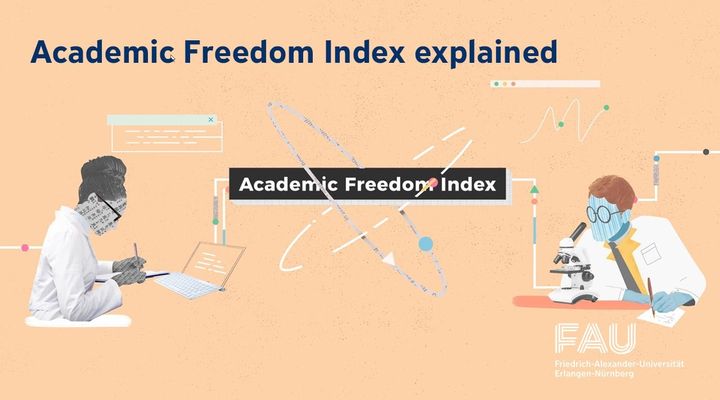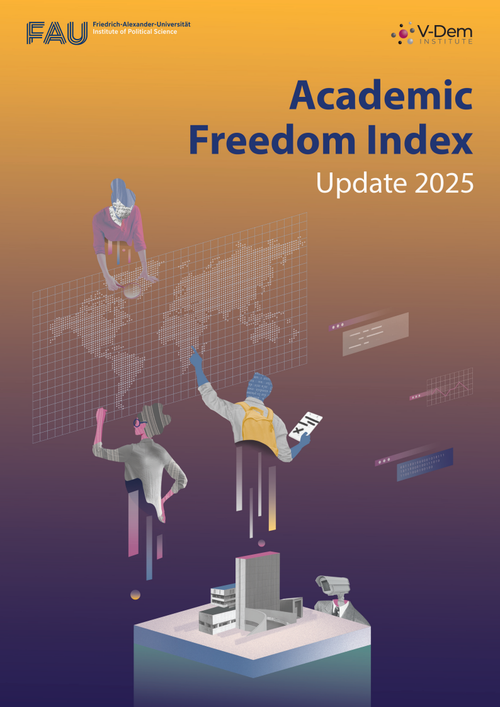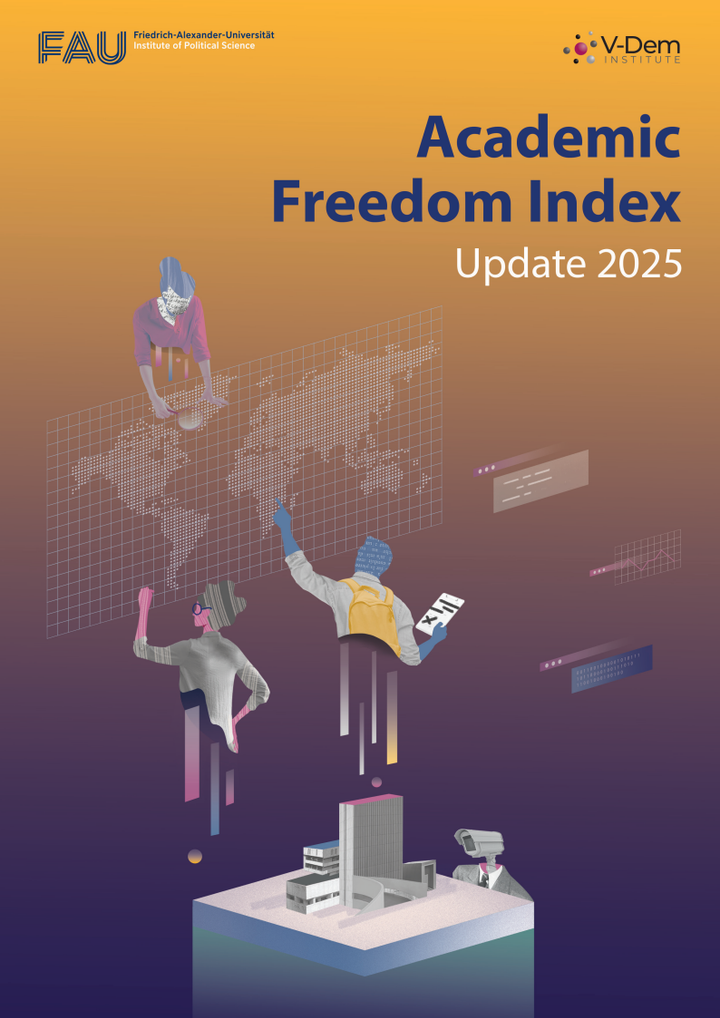The Academic Freedom Index Update 2025 provides an overview of the state of academic freedom around the world. It identifies 34 countries and territories that have experienced a statistically significant and substantially meaningful decline in academic freedom compared to ten years ago, while only eight countries saw an increase in academic freedom. The report also points to the electoral success of anti-pluralist parties as a potential driver of academic freedom decline. Drawing on data over a period of 50 years, we show that academic freedom is at risk when anti-pluralist parties reach government . To further explore this phenomenon, this year’s report covers three illustrative cases: Argentina, Poland, and the United States.
The State of Academic Freedom Worldwide
The interactive map above provides a comprehensive overview of academic freedom in 179 countries and territories in 2024. Based on assessment of the de facto protection of academic freedom as of December 2024, users can compare countries and investigate developments within countries over time.
Academic Freedom Index
The Academic Freedom Index (AFI) assesses de facto levels of academic freedom across the world based on five indicators: freedom to research and teach; freedom of academic exchange and dissemination; institutional autonomy; campus integrity; and freedom of academic and cultural expression. The AFI currently covers 179 countries and territories, and provides the most comprehensive dataset on the subject of academic freedom.
The AFI rests on assessments by 2,363 country experts worldwide, standardized questionnaires, and a well-established statistical model, implemented and adapted by the V-Dem project. The V-Dem project is known for generating sound data on various dimensions of democracy. The Academic Freedom Index uses a Bayesian measurement model method for data aggregation: it not only provides so-called point estimates, but also transparently reports measurement uncertainty in the global assessment of academic freedom. We strongly recommend that users take this uncertainty into account when comparing scores between countries and over time. You can learn more about our research and the index on our website. In addition, this introductory article explains the index design in more detail.

AFI Project History
The Academic Freedom Index (AFI) project started in 2017 with an expert consultation in Cologne, funded by the Fritz Thyssen Foundation. In 2019, with financial support from OSF’s Higher Education Program, researchers at Friedrich-Alexander-Universität Erlangen-Nürnberg (FAU), the V-Dem Institute, the Scholars at Risk Network, and the Global Public Policy Institute joined forces to launch the first version of the AFI, which was released in 2020. Please check out the team tab on this website to learn more about the key individuals who have worked on the AFI project so far. At present, V-Dem and FAU Erlangen-Nürnberg continue to implement the AFI project with a grant from the VolkswagenStiftung.

